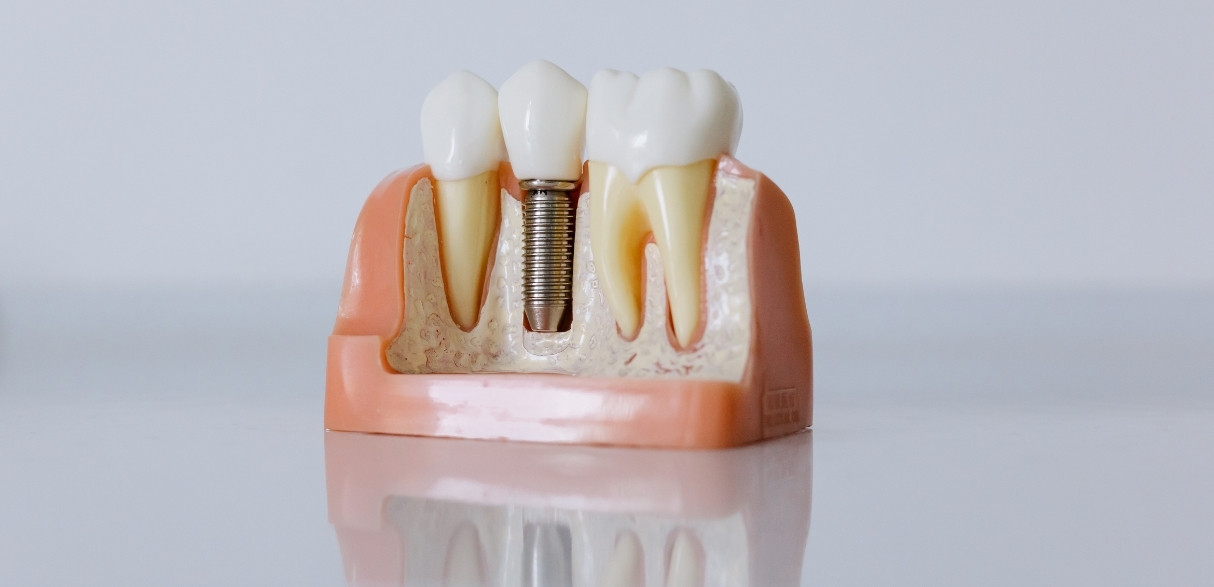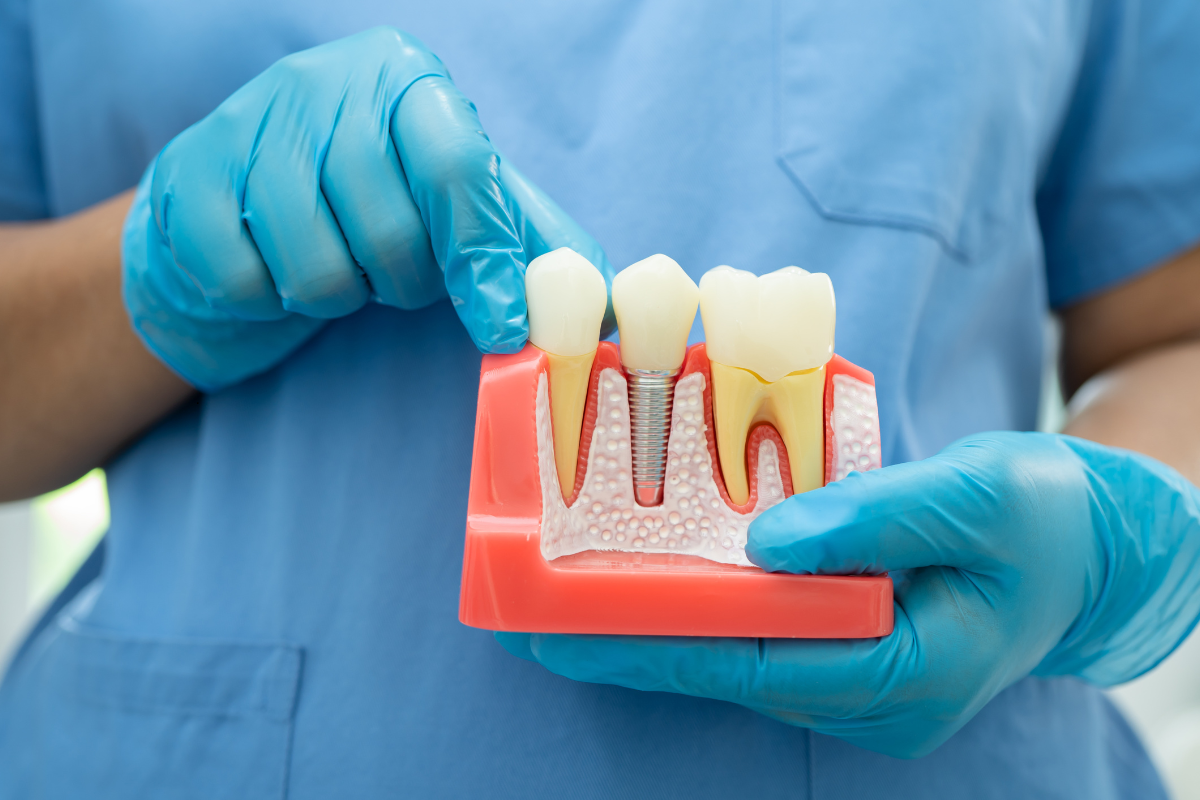
Dental implants are a popular and effective solution for replacing missing teeth. They are designed to look, feel, and function like natural teeth, providing a long-term solution for restoring your smile. However, many people are unsure about what to expect during the procedure.
Understanding each phase of the dental implant process can ease anxiety and help you prepare. This blog will explain what you can expect before, during, and after a dental implant procedure, ensuring you’re well-informed at every step.
What to Expect Before a Dental Implant Procedure?
1. Initial Consultation
The first step in the dental implant process is a thorough consultation. During this visit, your dentist will review your medical history and assess the condition of your teeth and gums. They may take X-rays or CT scans to evaluate the structure of your jawbone. This imaging helps determine if the bone is strong enough to support a dental implant.
If necessary, your dentist may recommend additional procedures, such as bone grafting, to ensure the implant integrates properly into your jaw.
2. Planning and Customization
Your dentist will create a personalized treatment plan based on your unique needs. This plan will detail the number of dental implants required, the best placement options, and whether any preparatory steps are needed.
If your jawbone has deteriorated, bone grafting might be needed to create a solid foundation for the implant. This phase is crucial because each patient’s situation is different, and the procedure should be tailored accordingly.
3. Preparation for Surgery
Your dentist will provide clear instructions before your dental implant surgery. You may need to fast for several hours before the procedure or stop taking certain medications.
If you’re taking blood thinners or other medications, your dentist will help you manage them before surgery. Following these guidelines closely is important to ensure the best possible outcome during your procedure.
4. Anxiety and Pain Management
Many people feel nervous about dental surgery, but options for pain management and sedation are available. Your dentist may offer local anesthesia to numb the area, or you may be given sedation to help you relax during the procedure.
For patients with higher anxiety, general anesthesia or conscious sedation can be used to make the experience more comfortable. Your dentist will discuss the best option based on your preferences and the complexity of your surgery.
What to Expect During the Dental Implant Procedure?
1. Surgical Process
The dental implant procedure is typically performed in stages. First, the dentist or oral surgeon will make a small incision in the gum tissue to expose the jawbone. Next, a titanium post, the actual dental implant, is carefully placed into the jawbone.
The dentist may use a drill to create a small hole in the bone before placing the implant. The surgery generally lasts between 1 to 2 hours, depending on the number of dental implants placed and the case’s complexity.
2. Pain and Discomfort
During the procedure, the area around the implant site will be numbed using a local anesthetic so you won’t feel any pain. Some patients opt for sedation to stay relaxed.
After the procedure, discomfort is normal but manageable. The pain level varies from person to person, but most people experience minimal discomfort, which can be managed with pain relievers.
3. Possible Complications
While dental implant surgery is considered safe, there are some rare complications to be aware of. Infection, bleeding, and nerve damage are potential risks, though they are uncommon.
Your dentist will take every precaution to minimize these risks. If any issues arise, your dentist will monitor your healing and provide treatment to address them.
4. Post-Surgery Instructions
Following your dentist’s post-surgery instructions is essential after the surgery. This may include avoiding certain foods or activities that could disturb the implant site. You should also rest for the first 24 hours after the procedure and avoid strenuous physical activity.
In addition, your dentist will likely recommend using ice packs and prescribed medications to reduce swelling and manage pain.
What to Expect After a Dental Implant Procedure?
1. Recovery Time
Recovery after the dental implant procedure varies from person to person. The initial swelling and bruising should subside within a few days. However, full healing and bone integration, a process known as osseointegration, can take several months.
During this time, the titanium implant will fuse with your jawbone, creating a stable foundation for the final restoration. This process typically takes 3 to 6 months, depending on individual factors.
2. Pain Management
Post-surgery pain is common, but it can be managed effectively with prescribed medications or over-the-counter pain relievers. You may experience some discomfort around the implant site for a few days.
Ice packs can help reduce swelling and pain during the initial recovery period. Following your dentist’s recommendations will ensure a smoother recovery process.
3. Diet and Lifestyle Adjustments
For the first few days after surgery, it’s best to stick to a soft food diet. Avoid chewing hard or sticky foods that could pressure the implant site.
Soft foods like soups, mashed potatoes, and smoothies are ideal. Maintaining a healthy diet rich in vitamins and minerals will also support the healing process.
4. Follow-up Visits
Regular follow-up visits are essential to monitor the healing of the implant. These visits allow your dentist to ensure the implant integrates well with the bone. If there are any complications or concerns, they can be addressed early.
Depending on the complexity of the procedure, your dentist may schedule several follow-up appointments over the next few months.
5. Long-Term Care
Once the dental implant fully integrates with the bone, it will function like a natural tooth. Long-term care involves practicing good oral hygiene, including brushing and flossing regularly.
Regular dental check-ups are important to ensure the implant is still healthy and secure. Your dentist will monitor the implant over time and ensure it functions properly.
When to Contact Your Dentist?
Warning Signs
Knowing when to contact your dentist after a dental implant procedure is important. Excessive pain, prolonged swelling, or unusual bleeding around the implant site may indicate a problem. Contact your dentist immediately if you notice signs of infection, such as fever or pus drainage.
Emergency Care
In some cases, you may need emergency care. If you experience severe pain, sudden swelling, or any signs of implant failure, seek immediate attention. Early intervention can prevent further complications and improve the chances of a successful implant.
Understanding what to expect before, during, and after a dental implant procedure helps ensure a smoother and less stressful experience. When cared for properly, dental implants are a reliable, long-term solution for replacing missing teeth.
By following our dentists’ instructions and attending regular check-ups, you can enjoy a healthy, functional smile for years to come. If you’re considering dental implants, schedule a consultation today to learn more about whether this procedure is right for you.




